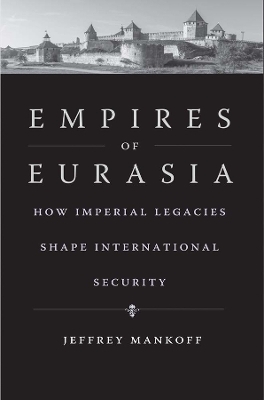
Empires of Eurasia
How Imperial Legacies Shape International Security
Seiten
2022
Yale University Press (Verlag)
978-0-300-24825-8 (ISBN)
Yale University Press (Verlag)
978-0-300-24825-8 (ISBN)
How the collapse of empires helps explain the efforts of China, Iran, Russia, and Turkey to challenge the international order
“This is a must read to understand the backstory of conflicts from Crimea to Xinjiang.”—Fiona Hill, author of There Is Nothing for You Here
Eurasia’s major powers—China, Iran, Russia, and Turkey—increasingly intervene across their borders while seeking to pull their smaller neighbors more firmly into their respective orbits. While analysts have focused on the role of leaders such as Vladimir Putin and Recep Tayyip Erdoğan in explaining this drive to dominate neighbors and pull away from the Western-dominated international system, they have paid less attention to the role of imperial legacies. Jeffrey Mankoff argues that what unites these contemporary Eurasian powers is their status as heirs to vast terrestrial empires, whose collapse left all four states deeply entangled with the lands and peoples along their peripheries but outside their formal borders. Today, they have all found new opportunities to project power within and beyond their borders in patterns shaped by their respective imperial pasts.
“This is a must read to understand the backstory of conflicts from Crimea to Xinjiang.”—Fiona Hill, author of There Is Nothing for You Here
Eurasia’s major powers—China, Iran, Russia, and Turkey—increasingly intervene across their borders while seeking to pull their smaller neighbors more firmly into their respective orbits. While analysts have focused on the role of leaders such as Vladimir Putin and Recep Tayyip Erdoğan in explaining this drive to dominate neighbors and pull away from the Western-dominated international system, they have paid less attention to the role of imperial legacies. Jeffrey Mankoff argues that what unites these contemporary Eurasian powers is their status as heirs to vast terrestrial empires, whose collapse left all four states deeply entangled with the lands and peoples along their peripheries but outside their formal borders. Today, they have all found new opportunities to project power within and beyond their borders in patterns shaped by their respective imperial pasts.
Jeffrey Mankoff is a Distinguished Research Fellow at the U.S. National Defense University’s Institute for National Strategic Studies, and the author of Russian Foreign Policy: The Return of Great Power Politics.
| Erscheinungsdatum | 20.04.2022 |
|---|---|
| Zusatzinfo | 4 b-w illus. |
| Sprache | englisch |
| Maße | 156 x 235 mm |
| Themenwelt | Geisteswissenschaften ► Geschichte ► Regional- / Ländergeschichte |
| Sozialwissenschaften ► Politik / Verwaltung ► Europäische / Internationale Politik | |
| ISBN-10 | 0-300-24825-3 / 0300248253 |
| ISBN-13 | 978-0-300-24825-8 / 9780300248258 |
| Zustand | Neuware |
| Informationen gemäß Produktsicherheitsverordnung (GPSR) | |
| Haben Sie eine Frage zum Produkt? |
Mehr entdecken
aus dem Bereich
aus dem Bereich
Schulbuch Klassen 7/8 (G9)
Buch | Hardcover (2015)
Klett (Verlag)
CHF 29,90
Buch | Softcover (2004)
Cornelsen Verlag
CHF 23,90


